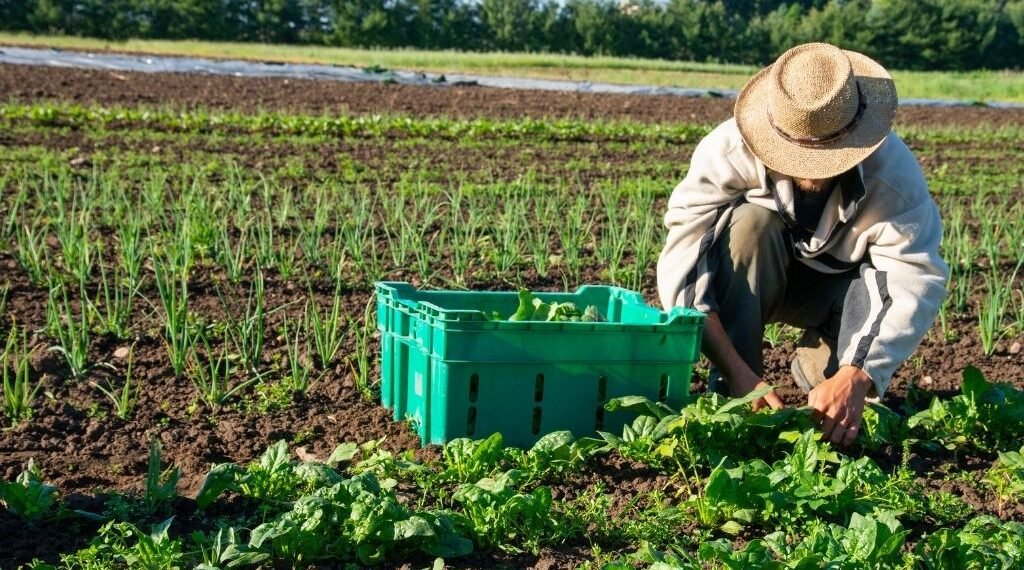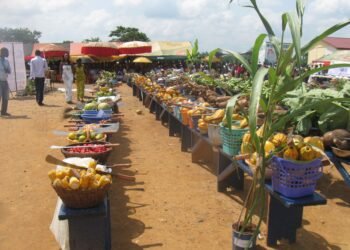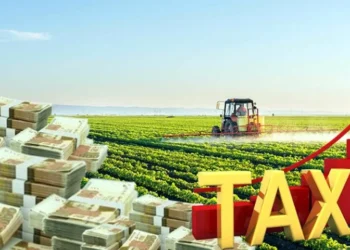Access to affordable credit remains a persistent challenge in Ghana’s agricultural sector, and a leading economist at the Development Bank Ghana (DBG) believes the key to unlocking this constraint lies in one word: derisking.
Professor Eric Osei-Assibey, Chief Economist at DBG, has emphasized that mitigating the inherent risks in agribusiness is essential to improving credit flows and lowering interest rates across the agricultural value chain.
Speaking at an event themed “Harnessing Agribusiness Potential for Economic Growth: Expanding Agricultural Frontiers and Maximising Productivity in Ghana,” Prof. Osei-Assibey painted a sobering picture of the current state of agricultural lending in Ghana. He revealed that agriculture continues to carry a disproportionately high risk profile, discouraging banks and financial institutions from offering affordable credit to farmers and agribusinesses.
“Agriculture is still very risky. If you look at the data, the sectoral distribution of non-performing loans (NPLs) in 2023 showed that agriculture contributed about 52% of NPLs in Ghana. It has come down in 2024 to about 38%, but it is still risky.”
Prof. Osei-Assibey
This high level of NPLs directly impacts how banks assess risk in the sector. As a result, lenders impose significant risk premiums on loans offered to agribusinesses, pushing interest rates beyond what most smallholder farmers and agripreneurs can afford. “Banks will take the risk premium to price. But how do we derisk the system? For me, that is the most important thing,” Prof. Osei-Assibey stated.
The Credit Conundrum in Agriculture
At the heart of the issue is a vicious cycle: elevated risk levels deter credit, and the lack of credit hampers productivity, which in turn sustains or worsens the risk profile. For example, without access to finance, farmers cannot invest in high-quality inputs, mechanization, or resilient technologies. This affects yield, profitability, and ultimately, loan repayment performance — which feeds into the sector’s already negative perception by banks.
Prof. Osei-Assibey was categorical in his call for structural reforms that address this foundational problem. “If we want to scale up credit to the sector, we have to begin to talk about derisking the sector. Because if the risk is low, pricing will be low to a large extent. But if the risk is high, they will price that in, and so the interest rate will go high,” he explained.

A Value Chain Approach to Risk Mitigation
The DBG Chief Economist also proposed a holistic approach to derisking that spans the entire agricultural value chain — from production to processing and distribution. According to him, piecemeal solutions that target only primary production miss the larger ecosystem that sustains agricultural output.
Derisking, he argued, must include improvements in rural infrastructure, market access, logistics, and storage facilities to reduce post-harvest losses — one of the hidden risks in agriculture. It should also involve robust insurance mechanisms, data-driven risk assessment tools, and blended finance models that bring together public and private capital to share risks.
Meanwhile, Ghana’s ambition to diversify its economy and reduce over-reliance on traditional exports like gold and cocoa hinges significantly on transforming its agriculture sector. Agribusiness has the potential to be a major driver of inclusive growth, employment, and food security — but only if affordable and sustainable financing mechanisms are in place.
Development Bank Ghana, under whose banner Prof. Osei-Assibey spoke, has already begun efforts to channel long-term financing to productive sectors, including agriculture. However, the success of these interventions depends on reducing default risk and restoring lender confidence.
The economist’s remarks serve as a clarion call to policymakers, financial institutions, development partners, and private sector actors to prioritize risk mitigation in their strategies. Without such deliberate actions, agriculture will continue to underperform, and credit will remain prohibitively expensive for the very players needed to power Ghana’s agricultural transformation.
READ ALSO: Fitch Warns Ghana Risks Downgrade Over Inability to Reopen Local Bond Market























